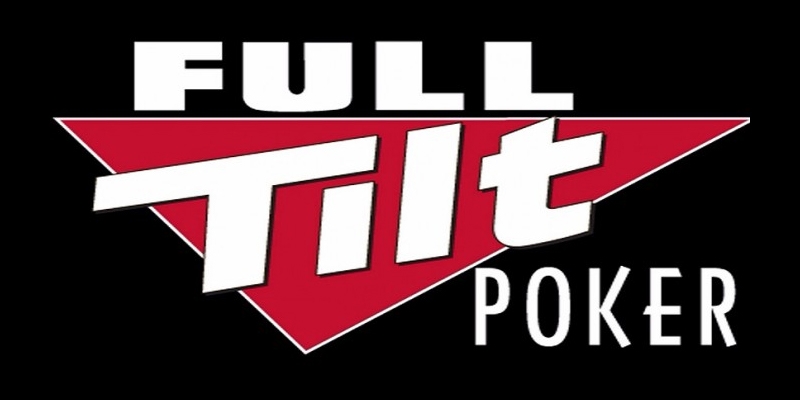

- Full tilt poker ponzi scheme full#
- Full tilt poker ponzi scheme software#
- Full tilt poker ponzi scheme series#
The poker sites made money from tournament fees and took a small percentage, or "rake," of the money wagered. When the player won, the account would be credited when the player lost, it would be debited.īehind the scenes, poker sites used other companies, called payment processors, to maintain player accounts. Players deposited money into an account held by the poker company.
Full tilt poker ponzi scheme full#
To raise its profile, Full Tilt promised online players the opportunity to play with and learn from its stable of poker stars. Ferguson took 20% of the company for himself, according to a person with knowledge of the situation. Most of the early members got a 10% stake though that fell as more members were added.

The pair dubbed their cadre "Team Full Tilt." Team members were given stock in the company. The idea: recruit stars from the poker world to lure players to a new site. Bitar tinkered with their concept for web poker while they traded stocks in Los Angeles.
Full tilt poker ponzi scheme software#
Ferguson, who sported a thick, shaggy haircut and had a Ph.D in software engineering, and his colleague Mr. His success enticed thousands of new players online and lured entrepreneurs hoping to capitalize on the boom.Īmong them was a lanky poker player, Chris Ferguson, nicknamed "Jesus." Mr.
Full tilt poker ponzi scheme series#
Online poker sites started popping up over a decade ago but took off in 2003 when an accountant named Chris Moneymaker entered an online tournament and later won $2.5 million in the World Series of Poker. The law is less clear about other types of gambling that are outlawed by the Wire Act, say legal experts. government has long argued that online gambling, including poker, is illegal under the Wire Act, a 1961 law that explicitly prohibits sports betting conducted over electronic communication. "I didn't even consider such a big company would be able to go bust just like that," Mr. suit and a subsequent raid by authorities in the U.K.'s Channel Islands where Full Tilt is licensed to operate its website. On June 29, he said that he tried to withdraw around $2,400 to pay for rent and other living expenses and discovered Full Tilt's website had been closed down, following the U.S. He racked up $8,000 in an account on Full Tilt. In London, Sebastian Fox, an aspiring music producer, said he could earn around $1,200 a month playing poker online. from players wagering around $14 billion a year online. Before the April crackdown, researcher H2 Gambling Capital estimated there were 1.7 million active poker player accounts in the U.S. The crackdown has shaken the large universe of poker fans. Full Tilt once hosted 54,000 people in a single online tournament.Ĭhris Ferguson, right, and Howard Lederer at a roundtable discussion held by the Poker Players Alliance in 2006. The government charges have upended an industry that in the past decade became a behemoth online business as Full Tilt and other websites fueled a global poker boom. Internet poker players outside the purview of U.S.

The Wall Street Journal has examined how the owners of Full Tilt played a cat-and-mouse game around the globe to process money from U.S. It also filed a civil suit at the time, which it amended Tuesday to include much more detailed allegations against Full Tilt. The government sought $3 billion from the companies, shut down their sites and stopped much of the online poker played in the U.S. The accusations against Full Tilt are part of a crackdown that began in April when the Justice Department indicted executives at three major online poker companies, including Full Tilt, on charges of illegal gambling, bank fraud and money laundering. It said it was seeking outside investment and was committed to paying players in full. "While the company was on the way to addressing the problems caused by these processors, Full Tilt Poker never anticipated that the DOJ would proceed as it did by seizing our global domain name and shutting down the site worldwide," the company said. In a statement in August, Full Tilt acknowledged that it was having problems processing player money and said it lost $115 million to government seizure and $42 million it says was stolen by a third-party payment processor. "He always acted in what he believed was the best interest of players and anyone associated with Full Tilt." Attorneys for Mr. Furst hasn't done anything wrong," said David Angeli, Mr. Furst, received $12 million and Raymond Bitar, who helped manage Full Tilt, got $40 million. It also alleged that a third poker player involved in the site, Mr.

Lederer and Ferguson received $38 million and $24 million, respectively, in distributions from Full Tilt. District Court in New York, the government alleged that Messrs.


 0 kommentar(er)
0 kommentar(er)
